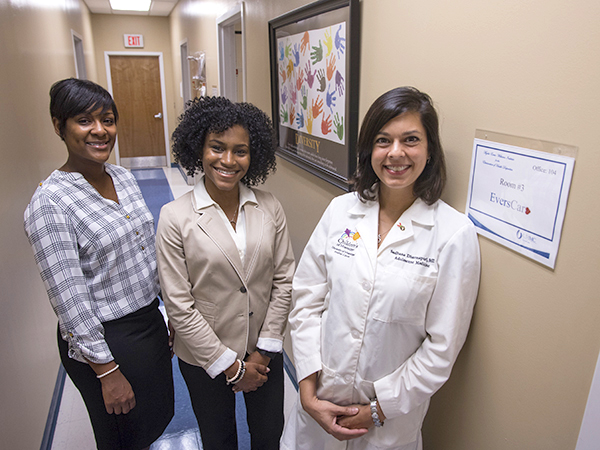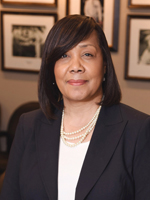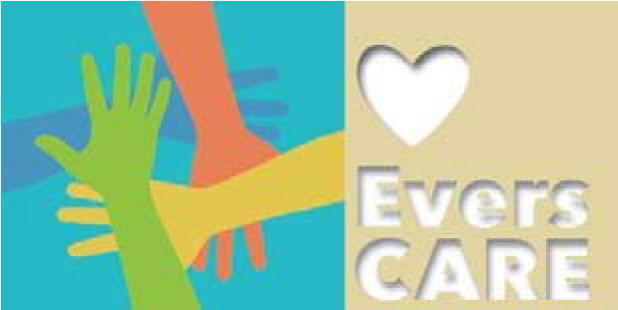EversCare seeks root causes of illness in children

Dr. Bettina Beech can't forget being told of a visit by a young girl to a University of Mississippi Medical Center physician.
“They asked her, 'What did you have for dinner last night?' said Beech, professor and dean of the John D. Bower School of Population Health. “She said, 'Last night, it wasn't my turn to have dinner.'"
The child wouldn't pass the “hunger vital signs” screen performed by Dr. Sadhana Dharmapuri, assistant professor of pediatrics and chief of the Division of Adolescent Medicine, and the other two physicians at the Adolescent and Young Adult Health Clinic in the Jackson Medical Mall.
Beginning in June, patients seen by adolescent medicine identified as living with food or housing insecurity will be seen also by the nurse practitioner staffing the new EversCare clinic tucked into the Myrlie Evers Williams Institute for the Elimination of Health Disparities.
The goal: Identify social, economic and environmental factors that leave children hungry, sick or continuously unwell and give the family resources to address that and the lack of adequate housing.

Beech
“We'll be looking at health literacy and navigating the health system,” said Beech, who will oversee the pilot program. “EversCare will have direct conversations with adolescent medicine to discover social and environmental problems that patients are potentially having.”
The way it will work: Adolescent medicine will sensitively query patients about the food they're eating, both in quantity and quality. They will refer patients to EversCare when needed as part of a partnership in which both groups work in tandem and share medical records.
Dharmapuri said she's relieved that EversCare will be a new resource to families, especially in ferreting out the root causes of hunger.
“We just saw a child who had lost a significant amount of weight,” Dharmapuri said. “The provider who referred the child to us thought that he had an eating disorder.
“But when we started talking to him, we found out the family runs out of its month's worth of food in two weeks. He doesn't have food for the last two weeks of the month.”
Children seen by adolescent medicine sometimes haven't eaten in a while. They're given a healthy snack before they leave, “but that's not enough,” Dharmapuri said.
Jana Bailey, the Evers Institute research projects coordinator, and Elizabeth Bell, the Institute's professional development coordinator, will bridge the process. Patients will be seen in one of the three exam rooms at EversCare.
“We will ask the sensitive questions so that we can better serve the patient and the physician,” Bailey said. “Not everyone is open about the problems in their home, so we want to be as welcoming as possible.”
The adolescent medicine practice supports teens and pre-teens through their transformation to adulthood and teaches them to self-advocate as they prepare for a successful and healthy future. The physicians are specially trained to treat patients for what some might say is typical adolescent behavior but in reality might be deadly. That includes eating disorders, depression and anxiety, sexually transmitted diseases, thoughts of suicide, and pregnancy and contraception needs.
“When you're talking about the Jackson metro area, there are children who don't even have a primary care physician,” Bailey said. “If they've been referred to pediatric specialty care at UMMC, that department will serve both purposes.”
Adolescent medicine will use a validated, two-question screening process produced by Children's Healthwatch, a program of Boston Medical, an academic medical center providing care that focuses in part on children's poverty issues. It asks children if they've worried about running out of food in the last year, or if they've been without money to buy food over the last year.
“Just last week, we had five kids screen positive for food insecurity,” Dharmapuri said.
Parents are asked to let their children answer questions on the paper form they're given. If a child answers true or often true, they're referred to EversCare. Staff there will give the family a list of food pantries in the area.
But some may hesitate to go because of stigma associated with poverty, Dharmapuri said. She and EversCare staff hope to start a food pantry there so that parents, especially those with limited transportation, won't be seen taking food home.

Doctors will speak privately with children, most of them older adolescents, before talking to their parent or guardian, Dharmapuri said.
“We ask what else is going on in their lives. Do you have transportation? What is the education level of the parents? Does mom or dad have a job? Do your parents or guardians have issues so that you have to be the adult in the house?
“We've found that a lot of teenagers don't have access to food or not enough money to buy food,” Dharmapuri said. “In order to qualify for food stamps, you have to be at 130 percent of the poverty line. That's pretty poor.”
EversCare staff will keep their conversation light in an effort to make patients and families feel comfortable and open to talking about barriers that contribute to food insecurity and their other challenges, Bailey said. EversCare will take that information and offer the family resources not just for food but for other needs, including specialty physicians and services to address their social and economic needs.
“We want to target pediatrics because a lot of those patients will have follow-up appointments with adolescent medicine,” Bailey said. “That will be a way to follow up with them to see if the resources we gave them are being used.”
It's urgent to identify children in need early in life, Dharmapuri said, because food insecurity and poor nutrition “impact brain development, overall growth, mood and disease management,” she said. “There's potential for long-term effects for not having those resources.
“I'm really excited that Dr. Beech has included us” in EversCare, Dharmapuri said. “Our population so desperately needs this support.”


